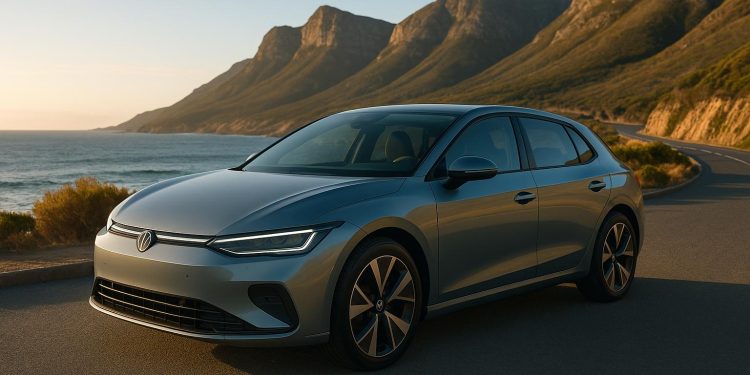- EV Market Growth: South Africa’s EV market is booming, with sales rising from 502 units in 2023 to 1,257 in 2024. Projections show a 38.3% annual growth through 2030.
- Top Picks: This list highlights 10 EVs that balance range, price, and compatibility with South Africa’s infrastructure.
- Challenges: Import costs are high due to 25% duties and additional taxes, making EVs pricier than combustion cars. Load shedding and coal-powered electricity also pose hurdles.
- Government Support: A $51 million fund and upcoming tax incentives aim to boost EV adoption, with local production incentives starting in 2026.
Quick Comparison of the Top EVs:
| Model | Range | Price (USD) | Charging Time (DC) | Key Feature |
|---|---|---|---|---|
| Hyundai Ioniq 9 | 311-335 mi | $60,555-$78,090 | 24 min (10%-80%) | Family-friendly 3-row SUV |
| BYD Sealion 7 | 282-299 mi | $58,200-$68,800 | 30 min (20%-80%) | Local dealer availability |
| Volvo EX30 | 214-296 mi | $44,200-$57,200 | 26 min (10%-80%) | Compact luxury SUV with subsidies |
| Kia EV3 | 202-416 mi | $47,600-$68,490 | 33 min (10%-80%) | Award-winning design and tech |
| GWM Ora 07 | 190-323 mi | $72,500-$85,000 | 46 min (10%-80%) | High-end sedan with premium features |
| Cupra Tavascan | 280+ mi | $56,500+ | 30 min (0%-80%) | Stylish SUV coupe |
| Tesla Model Y | 311-387 mi | $50,630-$61,630 | <30 min (10%-80%) | Best-selling EV with fast charging |
| Dayun Yuehu S5 | 205 mi | $24,990-$28,120 | N/A | Budget-friendly compact SUV |
| Audi Q6 e-tron | 307-321 mi | $65,095-$74,195 | 21 min (10%-80%) | German luxury with fast charging |
| Nissan Ariya | 205-289 mi | $41,160-$55,760 | 35 min (10%-80%) | Versatile mid-size SUV |
Key Takeaway:
Importing an EV to South Africa is costly but offers long-term benefits. Options like the Tesla Model Y and Hyundai Ioniq 9 provide excellent range and charging speeds, while budget models like the Dayun Yuehu S5 make EV ownership more accessible. Government incentives and infrastructure improvements are shaping the future of EVs in South Africa.
Are electric vehicles actually selling in South Africa? EV and hybrid sales stats 2024
1. Hyundai Ioniq 9
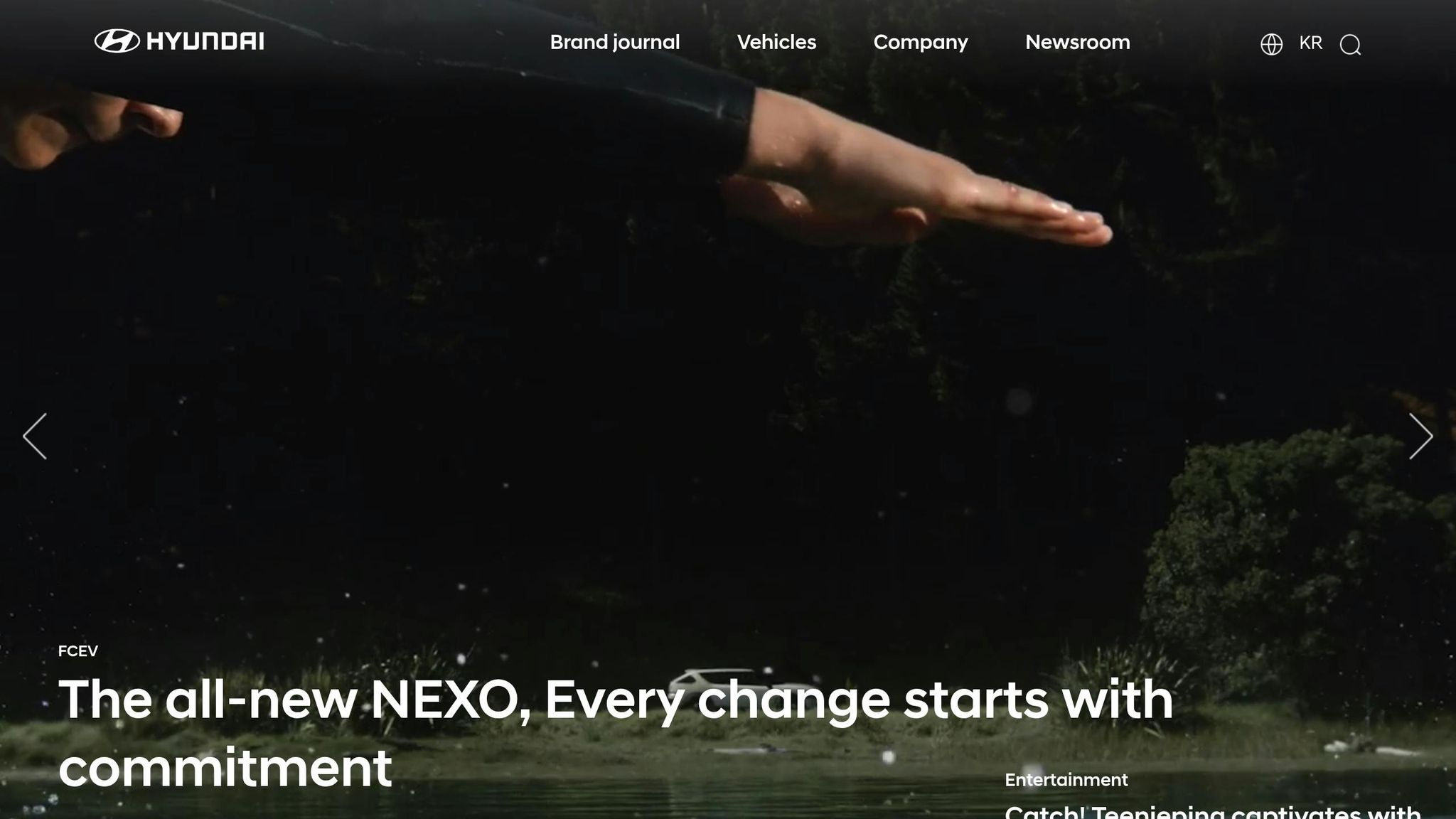
The 2026 Hyundai Ioniq 9 is Hyundai’s latest three-row electric SUV. Designed with families in mind, it blends cutting-edge technology with practical features, making it an attractive option for those transitioning to electric vehicles (EVs).
Price and Import Details
The Ioniq 9 offers several configurations to suit different budgets. The starting price for the base RWD S model is $60,555, while the premium AWD Performance Calligraphy Design trim tops out at $78,090. These prices include freight charges.
| Trim Level | Price (USD) |
|---|---|
| Ioniq 9 RWD S | $60,555 |
| Ioniq 9 AWD SE | $64,365 |
| Ioniq 9 AWD SEL | $67,920 |
| Ioniq 9 AWD Performance Limited | $72,850 |
| Ioniq 9 AWD Performance Calligraphy | $76,590 |
| Ioniq 9 AWD Performance Calligraphy Design | $78,090 |
For South African buyers, the listed prices exclude import duties, taxes, shipping, insurance, and local registration fees. Beyond its competitive pricing, the Ioniq 9 stands out with its excellent range and fast-charging capabilities.
Range and Charging Performance
The Ioniq 9 offers impressive range options across its lineup. The base RWD S model boasts an EPA-estimated range of 335 miles, while the AWD SE and SEL trims provide 320 miles. The performance-focused variants deliver around 311 miles per charge.
Equipped with a 110.3-kWh battery, the Ioniq 9 can charge from 10% to 80% in just 24 minutes using a 350-kW DC fast charger. Thanks to its advanced 800V battery system, it can also gain approximately 189 miles of range in just 15 minutes. Additionally, the car comes with a Tesla-compatible NACS charging port and CCS adapters, ensuring compatibility with a wide range of charging stations.
Designed for Local Infrastructure
The Ioniq 9 is well-suited for South African families. Its spacious three-row design, combined with advanced driver-assistance systems (ADAS) and regenerative braking, makes it ideal for daily use. The 800V architecture enhances its rapid charging capabilities, a significant benefit as local charging networks continue to expand. This makes the Ioniq 9 a practical choice in a market with evolving EV infrastructure.
Features and Specifications
The Ioniq 9 serves as a showcase for Hyundai’s technological advancements. It features state-of-the-art connectivity, exceptional battery performance, and a sleek, futuristic design. Smart systems like regenerative braking improve efficiency, while the SUV’s assembly in Georgia, USA, highlights Hyundai’s $21 billion investment in U.S. production and technology through 2028.
This combination of innovation, performance, and practicality positions the Ioniq 9 as a strong contender in the growing EV market.
2. BYD Sealion 7
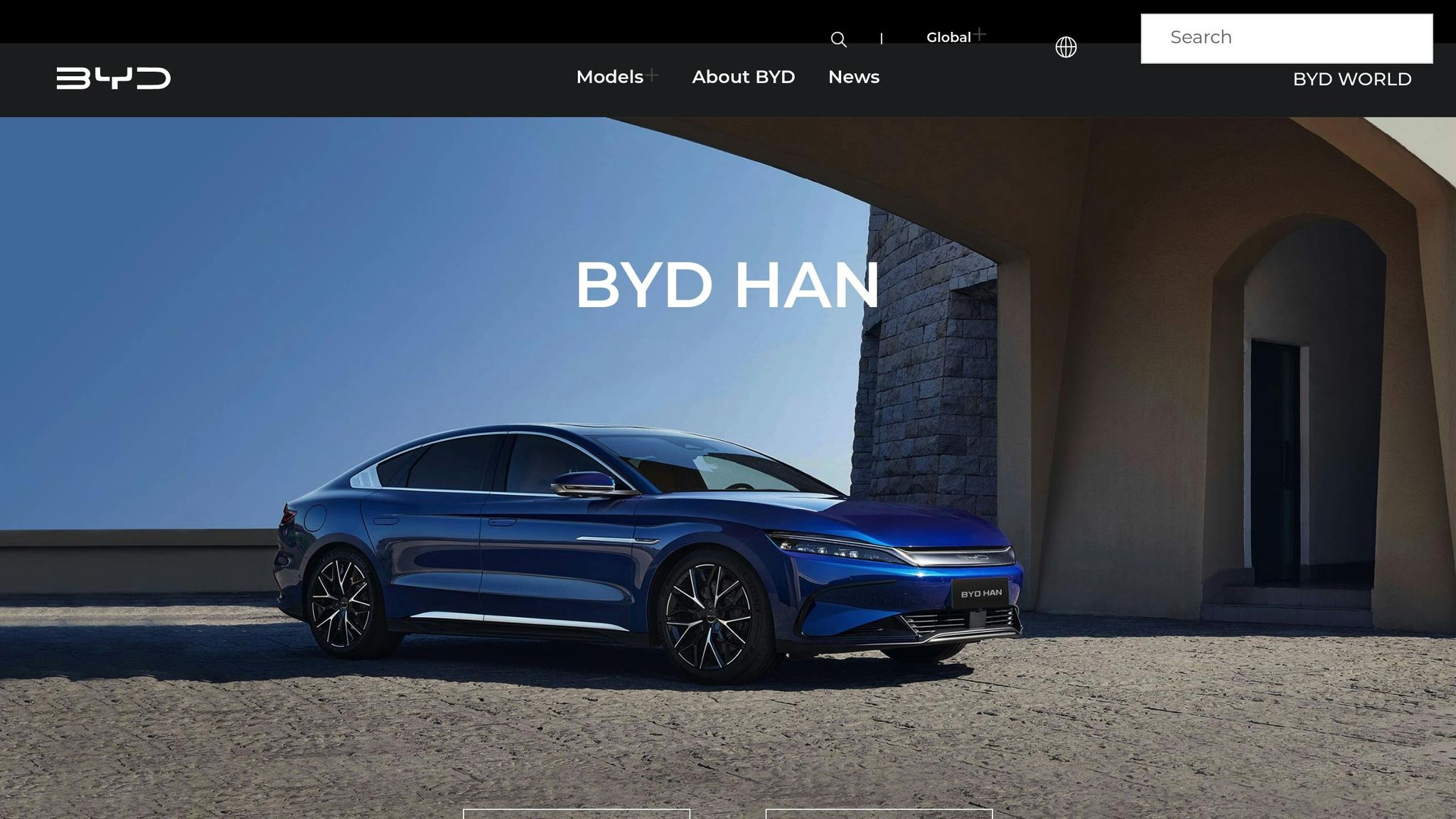
The BYD Sealion 7 is set to hit the South African market in 2025, offering a premium electric SUV experience. Buyers can easily purchase this vehicle through BYD’s local dealership network, simplifying the process.
Price and Import Details
The Sealion 7 comes with competitive pricing and eliminates the usual headaches of importing a vehicle. South African buyers can purchase it directly from local dealers without worrying about extra costs like shipping fees or customs duties. The Premium RWD variant is priced at R 1,099,900 ($58,200), while the Performance AWD model costs R 1,299,900 ($68,800).
| Variant | Price (ZAR) | Price (USD) |
|---|---|---|
| Sealion 7 Premium RWD | R 1,099,900 | $58,200 |
| Sealion 7 Performance AWD | R 1,299,900 | $68,800 |
Range and Charging Compatibility
The Sealion 7 is designed to meet local driving needs with impressive range and fast charging capabilities. The Premium RWD model offers up to 482 km on the WLTP cycle, while the Performance AWD variant delivers 456 km of range. Both versions feature an 82.56 kWh Blade Battery and support multiple charging options:
- 11kW AC charging for convenient home use.
- 150kW DC fast charging, which can recharge the battery from 20% to 80% in just 30 minutes.
These features ensure the Sealion 7 fits seamlessly into South Africa’s growing EV infrastructure.
Suitability for South African Infrastructure
The Sealion 7 is well-suited for South Africa, thanks to its thoughtful design and features. Each vehicle comes equipped with a 7kW wall box for home installation and a portable charger for emergencies. The Cell-to-Body (CTB) architecture not only enhances safety but also maximizes interior space. With 500 liters of rear storage and an additional 58 liters in the front trunk, the Sealion 7 is perfect for families and road trips.
Key Features and Specifications
The Sealion 7 packs performance and technology tailored for South African drivers. The Performance AWD model accelerates from 0–100 km/h in just 4.5 seconds, while the Premium RWD achieves the same in 6.7 seconds. Inside, the SUV features a rotating 15.6-inch touchscreen with Android Auto and Apple CarPlay compatibility, alongside a high-quality 12-speaker Dynaudio system for a superior audio experience.
With its blend of practicality, performance, and cutting-edge features, the BYD Sealion 7 makes electric mobility an accessible and hassle-free choice for South African buyers.
3. Volvo EX30

The Volvo EX30 made waves in South Africa in 2024, becoming a top choice among battery electric vehicles (BEVs). This compact luxury SUV blends Volvo’s trusted safety features with electric power, making it a great fit for city drivers and families alike.
Price and Import Duty Costs
Importing the Volvo EX30 into South Africa comes with a 25% tax, along with additional ad valorem charges.
Here’s the pricing breakdown for the EX30:
| Variant | Price (ZAR) | Price (USD) |
|---|---|---|
| EX30 Core | R 835,500 | $44,200 |
| EX30 Plus | R 968,400 | $51,300 |
| EX30 Ultra | R 1,080,200 | $57,200 |
There’s some good news for buyers: Naamsa has proposed an R80,000 subsidy for fully electric vehicles. If approved, this could bring the cost of the Core model down to R711,900 ($37,700). The subsidy applies to road-legal New Energy Vehicles (NEVs) in the EMA region, and the EX30 qualifies.
Range and Charging Compatibility
The EX30 offers three powertrain options to cater to different driving needs. The Single Motor version delivers a range of 344 km, while the Single Motor Extended Range stretches that to 476 km. For those seeking performance, the Twin Motor Performance variant offers 460 km of range.
When it comes to charging, the EX30 performs impressively. Using a DC fast charger, it can go from 10% to 80% in just 26 minutes. For everyday use, it supports both AC and DC charging with cables compliant with IEC 62196 and IEC 61851 standards. With South Africa’s growing EV infrastructure, these capabilities make the EX30 a practical choice for daily life.
Suitability for South African Infrastructure
Volvo Car South Africa ensures that EX30 buyers are well-supported with a comprehensive charging package. Each purchase includes a GridCars home wall box and a R7,500 installation allowance, making home charging faster and more convenient.
Additionally, buyers receive a 24-month public charging voucher worth R12,000, which works with a GridCars charge card. This card provides access to 350 public charging stations nationwide, including along major routes like the N1 and N3 highways. Long-distance travel is well within reach.
To enhance the ownership experience, the Volvo Cars app helps drivers locate charging points and sends reminders to recharge, making EV ownership easier in South Africa.
Key Features and Specifications
Inside, the EX30’s minimalist design focuses on functionality, while the Twin Motor Performance variant offers thrilling power, generating 315 kW and 543 Nm. It accelerates from 0–100 km/h in just 3.6 seconds.
True to Volvo’s heritage, safety is at the core of the EX30. It comes equipped with advanced safety systems to protect both passengers and pedestrians, reinforcing Volvo’s reputation for prioritizing safety.
The EX30 is a shining example of Volvo’s move toward electric vehicles, delivering impressive range, performance, and safety in a premium package that proudly carries the Volvo name.
4. Kia EV3
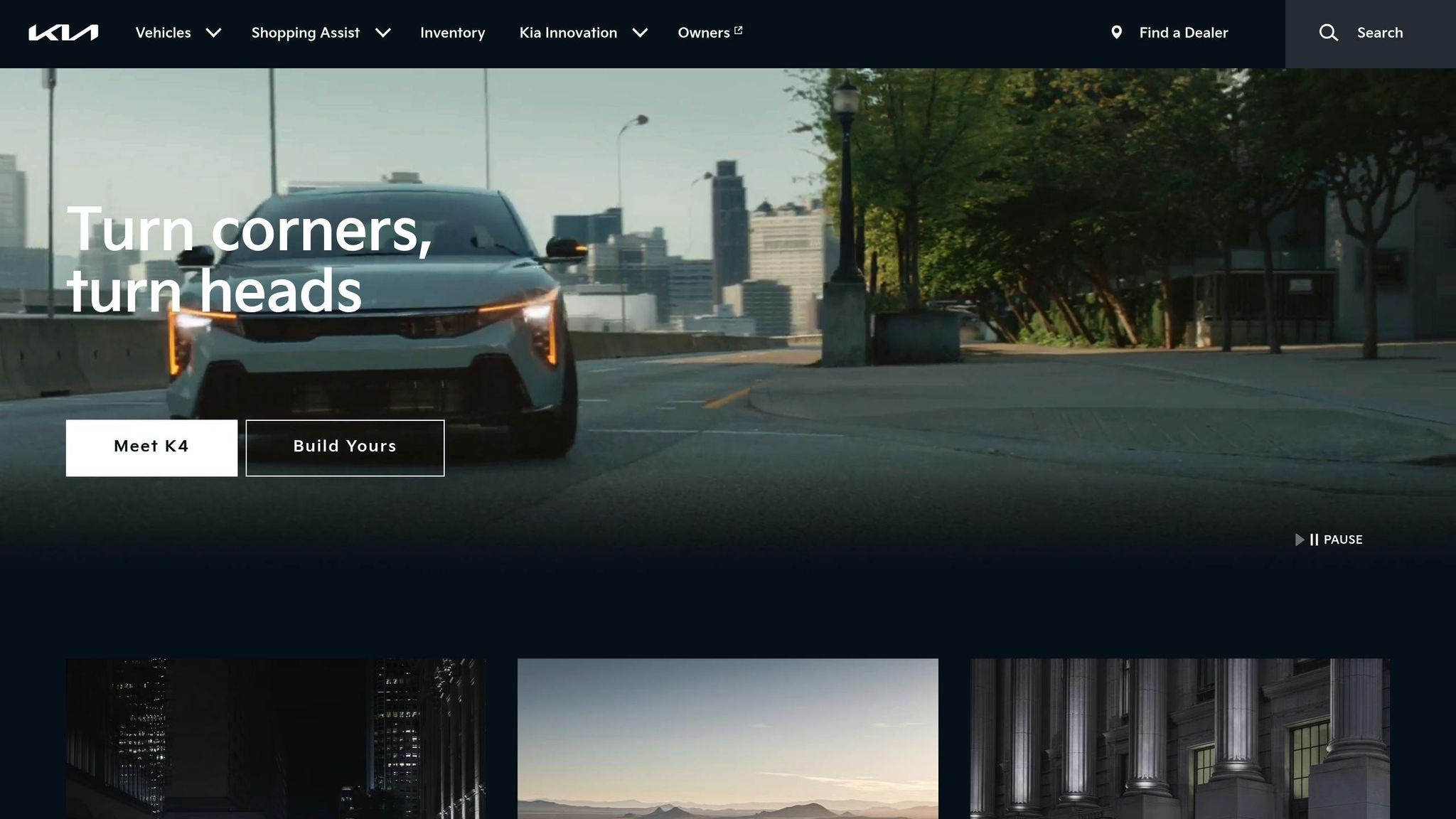
The Kia EV3, which snagged both the 2025 Electrifying Car and World Car of the Year awards, merges sleek design with cutting-edge tech, making it an appealing choice for those considering imports to South Africa.
Price and Import Duty Costs
Globally, the Kia EV3 starts at around $30,000. However, after factoring in a 25% import duty and additional fees, South African buyers can expect prices ranging from $47,600 for the base model to $68,490 for the GT-Line. This positions the EV3 as a premium offering in the local market, so potential importers should plan their budgets accordingly.
Now, let’s look at the EV3’s range and charging capabilities, which make it a strong contender for South African roads.
Range and Charging Compatibility
The EV3 Long Range model features a 78.0 kWh usable battery, delivering impressive performance across varied driving conditions. On highways in cold weather, it achieves around 325 km, while in city driving under milder conditions, it can stretch up to 670 km. For typical daily use, the EV3 provides a reliable range of 455 km with an efficiency of 171 Wh/km.
Charging is straightforward, thanks to South Africa’s expanding EV infrastructure. The EV3 supports AC charging up to 11 kW with a Type 2 connector and DC fast charging up to 135 kW via a CCS connector. Home charging from 0–100% takes about 8 hours and 30 minutes using an 11 kW charger, while a DC fast charger can get you from 10–80% in just 33 minutes, adding up to 570 km of range per hour.
| Charging Type | Max Power | 10–80% Time | Range Added (km/h) |
|---|---|---|---|
| Home AC (11 kW) | 11 kW | 8h 30m (0–100%) | 54 |
| DC Fast (50 kW) | 50 kW | 77 min | 240 |
| DC Fast (135 kW) | 135 kW | 33 min | 570 |
These charging options suit both urban and intercity driving needs, as discussed below.
Suitability for South African Infrastructure
The Kia EV3 is well-suited for South Africa’s growing EV network. Its 400V architecture and support for Plug & Charge functionality (using the ISO 15118-2 protocol) ensure compatibility with both current and planned charging stations. For long-distance travel, its 1-Stop Range feature enables drivers to cover up to 472 km with just a 15-minute charge under typical conditions. With a Long Distance Suitability rating of 3/5, it strikes a balance between efficiency for city commutes and capability for intercity trips.
Key Features and Specifications
The Kia EV3 is available with battery capacities ranging from 55–78 kWh and comes with Kia’s 7-year/100,000-mile battery warranty. Its 460-liter boot space makes it practical for families and those needing extra cargo room.
"The Kia EV3 is a truly brilliant package. It’s got style, comfort, space, tech to spare and is also great value for money, not to mention a pleasure to drive."
- Ginny Buckley, Electrifying.com
The EV3 also boasts advanced driver assistance systems (ADAS), along with a striking exterior and a thoughtfully designed interior. Ho Sung Song, President and CEO of Kia, highlighted its impact:
"This award highlights Kia’s global leadership in providing design-led, technologically advanced, sustainable mobility solutions and how the EV3’s class-leading attributes redefine the user experience for customers worldwide."
With its excellent range, fast charging options, and award-winning design, the Kia EV3 offers a strong case for South Africans looking for a high-performance electric SUV that delivers on both features and value.
5. GWM Ora 07
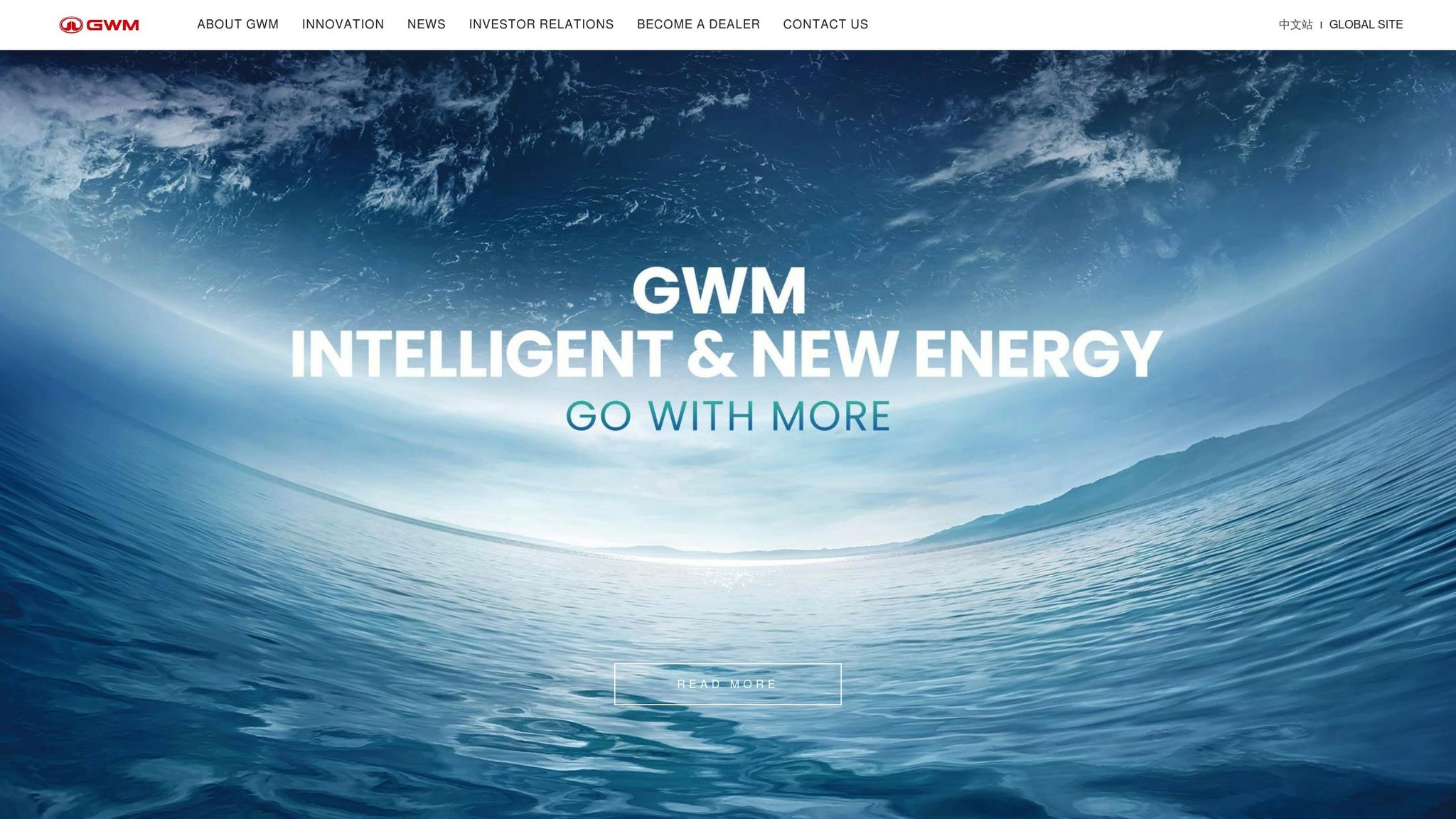
The GWM Ora 07 is a high-end electric sedan that brings together cutting-edge features and solid performance, making it an appealing option for South African importers.
Price and Import Duty Costs
The GWM Ora 07 GT is priced at €53,490 (approximately $58,000) in Germany. However, importing it to South Africa adds a 25% import tax. By comparison, the locally available Haval Ora 03 is priced at R700,000 (about $48,000). Factoring in import duties, the Ora 07 is expected to cost between $72,500 and $85,000. This makes it a pricier option, but one worth considering for its range of features and performance.
Range and Charging Compatibility
Equipped with an 83.5 kWh battery, the Ora 07 GT boasts an impressive WLTP range of up to 520 km. Real-world tests, however, show that range can vary depending on conditions:
| Weather Condition | Real Range (GWM Ora 07 GT) |
|---|---|
| City – Cold | 425 km |
| Highway – Cold | 305 km |
| Combined – Cold | 365 km |
| City – Mild | 620 km |
| Highway – Mild | 390 km |
| Combined – Mild | 490 km |
The car supports Type 2 AC charging at 11 kW and CCS DC fast charging up to 88 kW. Charging at home takes around 9 hours for a full charge, while a DC fast charger can get the battery from 10% to 80% in just 46 minutes. These options make it practical for both daily commutes and longer road trips.
Suitability for South African Infrastructure
The Ora 07’s charging setup is well-suited for South Africa’s growing EV charging network. Its Type 2 and CCS ports are compatible with most current and planned stations. With an energy consumption rate of just 16 kWh per 100 km, the car is efficient enough to cover long distances between charges, which is a key consideration for South African roads.
Key Features and Specifications
Apart from its pricing and range, the Ora 07 stands out with its performance and interior comforts. The Long Range model offers 201 horsepower and accelerates from 0 to 62 mph in 7.9 seconds, while the GT model ups the game with 402 horsepower and a 0–62 mph time of just 4.5 seconds.
Inside, the Ora 07 provides a premium experience with a 12.3-inch infotainment screen supporting Apple CarPlay and Android Auto, a 10.25-inch digital dashboard, and a panoramic glass roof. Additional features include keyless entry, a motion-activated trunk, a 360-degree parking camera, and electrically adjustable leather seats.
| Model | Power | 0–62 mph | Range | Top Speed |
|---|---|---|---|---|
| Long Range | 201 hp | 7.9 s | 395 miles | 105 mph |
| GT | 402 hp | 4.5 s | 320 miles | 120 mph |
The Ora 07 is designed to cater to buyers seeking luxury in the electric sedan market. As noted by automotive experts:
"Unusual looks give the GWM Ora 07 presence that’s matched by its drive and well appointed cabin" – Alisdair Suttie, Jordan Katsianis.
However, it’s worth mentioning that the car has a few downsides, such as limited boot access and less effective regenerative braking. Even so, its mix of performance, comfort, and pricing makes it a strong contender for South Africans looking to import a premium electric vehicle.
6. Cupra Tavascan

The Cupra Tavascan is an electric SUV coupe that combines striking design with impressive performance. Designed to compete in the premium EV segment, it offers a blend of advanced features and practicality.
Price and Import Duty Costs
The Tavascan comes with a starting price of around €52,000 (approximately $56,500). However, its pricing is influenced by a 21.3% EU import tariff, as the vehicle is manufactured in China. Next, let’s dive into its range and charging capabilities.
Range and Charging Compatibility
Equipped with a 77-kWh battery pack, the Tavascan delivers a range exceeding 280 miles (450 km) on a single charge. It supports 135-kW DC fast charging, allowing you to charge the battery from 0 to 80% in about 30 minutes. Buyers can choose between two configurations: the single-motor Endurance model or the dual-motor AWD VZ version. The top-tier VZ variant boasts 300 horsepower and can accelerate from 0 to 60 mph in just 6.1 seconds.
Suitability for Local Infrastructure
Safety is a priority for the Tavascan, as evidenced by its 5-star Euro NCAP safety rating. This makes it a reliable choice for families and safety-conscious drivers.
Key Features and Specifications
Inside, the Tavascan offers a premium experience with a sleek 15-inch touchscreen display that controls most of the car’s functions. The interior is crafted with high-quality materials and cutting-edge technology, creating a modern and luxurious atmosphere.
| Specification | Details |
|---|---|
| Battery Capacity | 77 kWh |
| Range | 280+ miles (450+ km) |
| Power (Top Variant) | 300 hp |
| 0–60 mph Acceleration | 6.1 seconds |
| Fast Charging | 0–80% in 30 minutes (135 kW) |
| Display | 15-inch touchscreen |
The Tavascan also comes equipped with advanced driver-assistance features like adaptive cruise control, lane-keeping assist, and parking assist, enhancing the overall driving experience. With its combination of performance, technology, and sophisticated design, the Cupra Tavascan embodies CUPRA’s vision of delivering premium electric vehicles that remain accessible to a wider audience.
sbb-itb-09752ea
7. Tesla Model Y
The Tesla Model Y has earned its spot as the world’s best-selling electric vehicle, dominating global EV sales. This compact SUV combines impressive range, fast charging capabilities, and access to Tesla’s extensive Supercharger network, making it a standout choice for EV enthusiasts.
Price and Import Costs
The 2025 Model Y comes in three variants: the base model starts at approximately $31,490, the Long Range at $34,490, and the Performance version at $37,990. For South African buyers, import duties and related costs bring the final retail price to somewhere between $50,630 and $61,630.
Range and Charging Capabilities
The updated 2025 Model Y offers impressive range across its lineup:
- Long Range Rear-Wheel Drive: Up to 387 miles (623 km)
- Long Range All-Wheel Drive: Up to 364 miles (586 km)
- Base Model: Up to 311 miles (500 km)
Charging is equally impressive. Thanks to its 250kW rapid charging system, the Model Y can recharge from 10% to 80% in under 30 minutes. Its compatibility with Tesla’s Supercharger network further ensures that South African owners have access to a reliable and efficient charging solution, perfectly complementing the country’s growing EV infrastructure.
Tailored for South African Roads
The Model Y has been designed to meet the needs of diverse driving conditions. Tesla’s latest updates make this version over 20% quieter than its predecessor, enhancing comfort during long journeys. Acoustic glass and features like a powered boot opening add convenience for everyday use.
With a spacious interior and comfortable seating, the Model Y is well-suited for families. The dual-motor all-wheel drive system available on higher trims provides added traction, making it ideal for South Africa’s varied road conditions.
Key Features and Specifications
The 2025 Model Y showcases Tesla’s latest design innovations and comes packed with advanced features. The Launch Edition includes a dual-motor all-wheel drive system, offering up to 320 miles of range on standard 19-inch wheels. Opting for 20-inch wheels slightly reduces the range to 303 miles.
| Specification | Details |
|---|---|
| Range (WLTP) | 311–387 miles (500–623 km) |
| Charging Speed | 250kW (10–80% in <30 min) |
| Drive Options | RWD, AWD available |
| Display | Large central touchscreen |
| Safety Features | Standard driving-assist system |
| Additional Features | 8-inch rear touchscreen, ambient lighting |
Inside, Tesla’s signature large infotainment display manages most controls, while an 8-inch rear touchscreen enhances passenger convenience. Standard driving-assist systems come included, and buyers can opt for Tesla’s Full Self-Driving package for more advanced features. Other highlights include front and rear lightbars, customizable ambient lighting, and an additional front-facing camera for improved safety.
8. Dayun Yuehu S5

The Dayun Yuehu S5 is currently South Africa’s most budget-friendly electric vehicle, making the dream of EV ownership a reality for more people. Imported by Enviro Automotive, this compact SUV is designed for tight urban spaces and easy parking.
Price and Import Costs
The Dayun Yuehu S5 brings affordability to the South African EV market. The Standard model is priced at $24,990 (R399,900), while the VIP version comes in at $28,120 (R449,900). Despite a 25% import duty on EVs last year, Enviro Automotive has managed to keep the price competitive. This makes the S5 one of the most accessible options in its category, offering not just affordability but also practical features like solid range and efficient charging.
Range and Charging Compatibility
Equipped with a 31.7 kWh battery, the Yuehu S5 delivers a range of 205 miles (330 km). With an energy consumption rate of about 6.6 kWh per 62 miles (10.7 kWh/100 km), it’s perfect for daily city driving. South Africa’s growing EV charging infrastructure further supports the S5. For instance, the EV charging market is expected to grow annually by 26.3%, reaching USD 471.3 million by 2025. Investments like Mercedes-Benz‘s R40 million (about $2.5 million) for 127 charging stations and the Free State government’s collaboration with Zero Carbon Charge to build 120 new stations with a US$234 million investment show promising progress.
Suitability for South African Infrastructure
The Yuehu S5 is well-suited for South Africa’s urban landscape, excelling in cities like Cape Town, Johannesburg, and Durban, where most EV activity is concentrated. Its compact size makes it easy to maneuver through traffic and park in tight spaces. Additionally, its ground clearance of 7.9 inches (201 mm) ensures it can handle South African road conditions, while its top speed of 71 mph (115 km/h) – adjusted specifically for the local market – meets highway driving needs.
Key Features and Specifications
The S5’s electric motor produces 47 hp (35 kW) and 78 lb-ft (105 Nm) of torque, offering sufficient power for city commutes. Its compact dimensions – 145 inches in length, 66 inches in width, and 63 inches in height – paired with a 95-inch wheelbase and a tight 35-foot turning circle, make it a nimble option for urban driving.
| Specification | Standard | VIP |
|---|---|---|
| Price | $24,990 (R399,900) | $28,120 (R449,900) |
| Range | 205 miles (330 km) | 205 miles (330 km) |
| Power | 47 hp (35 kW) | 47 hp (35 kW) |
| Battery | 31.7 kWh | 31.7 kWh |
| Wheels | Standard | 16-inch alloy |
Standard safety features include ABS, EBD, hill-start assist, driver and passenger airbags, and Isofix child-seat anchor points. The VIP trim adds LED daytime running lights, front fog lamps, ultrasonic sensors, and 16-inch alloy wheels for a more polished look and added convenience.
"At just 3.65 meters long, the Dayun Yuehu S5 is perfect for daily urban commutes, navigating congested city streets, and fitting into tight parking spots. It offers responsive handling, superior performance, ample space, family comfort, and peace of mind with its safety features. While compared to larger, pricier electric SUVs, the affordable Yuehu S5 confidently carves its niche. It may not compete with luxury EVs offering bigger electric motors or extended ranges, but it remains a practical and budget-friendly option for South Africans seeking a modern, feature-packed urban EV without breaking the bank", says Gideon Wolvaardt, Managing Director of Enviro Automotive.
9. Audi Q6 e-tron
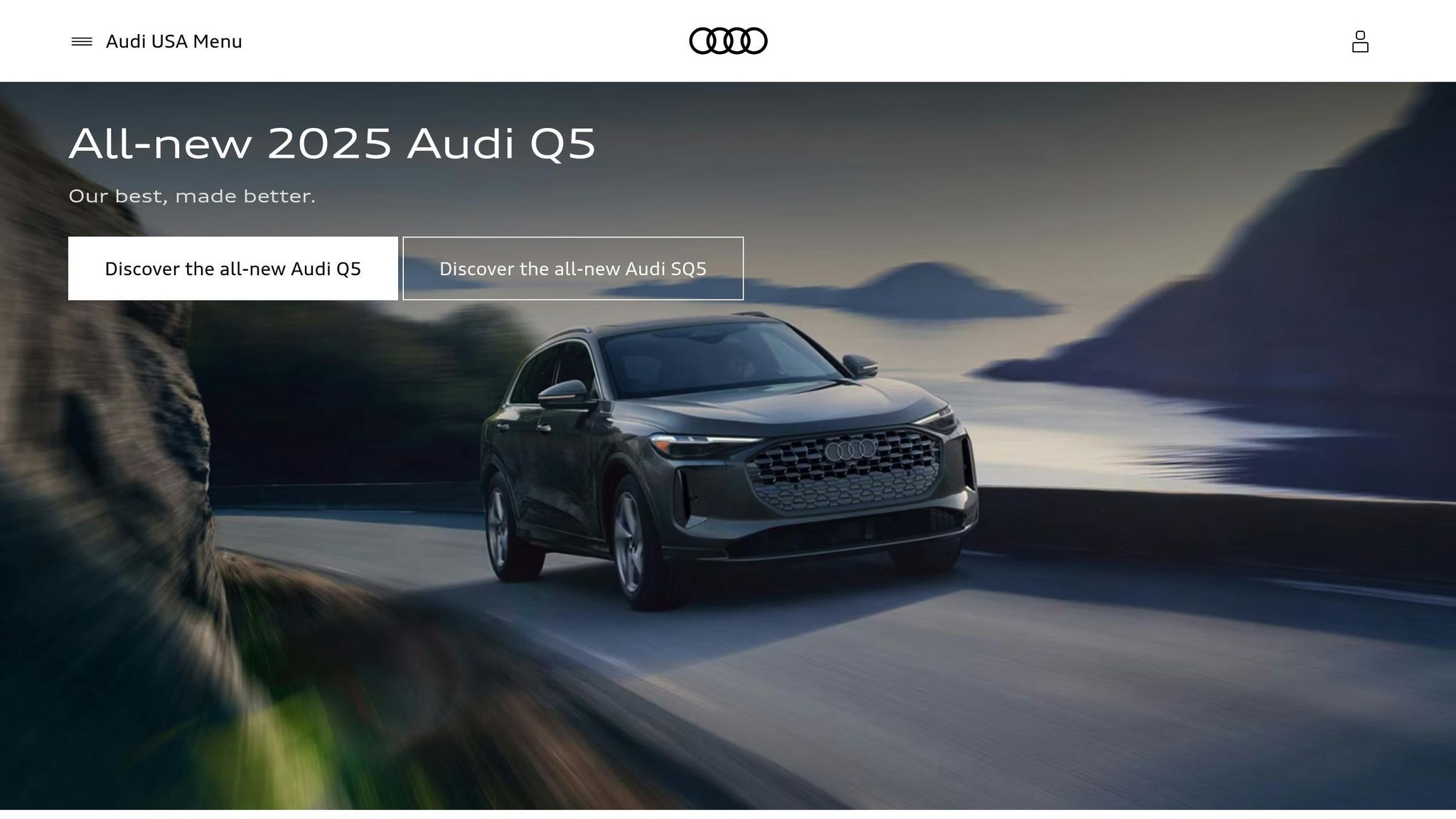
The Audi Q6 e-tron brings a touch of German luxury to the electric vehicle market. Built on Audi’s cutting-edge Premium Platform Electric (PPE) architecture, this mid-size SUV comes in both classic SUV and sleek Sportback designs, giving buyers a sophisticated choice in the premium EV segment.
Price and Import Costs
The 2025 Audi Q6 e-tron is positioned as a luxury contender in the EV market. Pricing starts at approximately $65,095 for the base model, with the Quattro version priced around $67,095, and the high-performance SQ6 e-tron Quattro coming in at about $74,195. Keep in mind, these prices exclude a $1,295 destination charge, along with taxes, dealer fees, and any additional costs for South African importers, such as duties and shipping. These pricing tiers reflect the premium nature of the Q6 e-tron lineup.
Range and Charging Compatibility
The Q6 e-tron offers an impressive official range of up to 625 km (389 miles) on a single charge. However, EPA estimates suggest the single-motor version delivers around 321 miles, while the dual-motor Quattro variant achieves roughly 307 miles. The vehicle is powered by a 94.4 kWh battery and features an 800-volt architecture, enabling ultra-fast charging at up to 270 kW. At compatible high-power stations, drivers can gain approximately 158 miles (255 km) of range in just 10 minutes, with the battery charging from 10% to 80% in about 21 minutes.
The Q6 e-tron also includes Plug & Charge technology, simplifying the process at compatible stations, and offers an 11 kW AC charging option for home setups. South Africa’s EV charging network is growing rapidly, with investments like Mercedes-Benz’s R40 million project adding 127 new charging stations. Projections indicate the local EV market could reach $1.01 billion by 2029, making the Q6 e-tron an attractive option for the region’s evolving infrastructure.
Suitability for South African Infrastructure
With refined engineering and flexible driving modes, the Q6 e-tron handles a variety of terrains. Its regenerative braking system adapts to different driving conditions, while rear-wheel and all-wheel drive options enhance traction for both city streets and tougher rural roads. This versatility makes it a practical choice for South Africa’s diverse landscapes.
"Built on the new PPE platform, the Audi Q6 e-tron is the next technological leap in premium electric mobility for our customers", says Gernot Döllner, chairman of the Board of Management of Audi AG.
Key Features and Specifications
The Q6 e-tron offers strong performance across its lineup. The base model delivers 322 hp, while the Quattro variant steps up to 456 hp, and the SQ6 e-tron Quattro tops out at 509 hp. Acceleration is quick, with the base model hitting 0–60 mph in 6.3 seconds, the Quattro in 4.9 seconds, and the SQ6 in just 4.1 seconds.
| Model | Power | 0–60 mph | Charging Power | EPA Range | Base Price |
|---|---|---|---|---|---|
| Q6 e-tron | 322 hp | 6.3 sec | 260 kW | 321 miles | $65,095 |
| Q6 e-tron Quattro | 456 hp | 4.9 sec | 270 kW | 307 miles | $67,095 |
| SQ6 e-tron Quattro | 509 hp | 4.1 sec | 270 kW | 275 miles | $74,195 |
Inside, the Q6 e-tron features a modern curved display and uses sustainable materials throughout the cabin. Safety systems include automated emergency braking and lane-departure warnings. Car and Driver awarded the Q6 e-tron an 8.5/10, praising its quick acceleration, advanced tech features, and luxurious feel reminiscent of classic high-end SUVs.
10. Nissan Ariya

The Nissan Ariya stands out as a versatile mid-size electric SUV that combines affordability, advanced features, and multiple trim options, making it an appealing choice for South African importers.
Price and Import Costs
The Ariya is available in four trims: the base Engage FWD starts at $39,770, the mid-range Evolve+ FWD at $44,370, the Engage+ AWD at $45,370, and the top-tier Platinum+ AWD at $54,370. A mandatory $1,390 destination charge applies to all trims. For South African buyers, additional costs such as shipping, duties, VAT, and registration fees will influence the final price.
Range and Charging Compatibility
Depending on the trim and drive type, the Ariya offers a range of 205 to 289 miles per charge. It supports fast DC charging, allowing a 10% to 80% recharge in approximately 35 minutes, and Level 2 AC charging, which takes 10.5 hours for the 63 kWh battery and 14 hours for the 87 kWh version.
The vehicle uses the CCS (Combined Charging System) connector and comes with a NACS adapter, granting access to over 20,000 Tesla Supercharger locations through the NISSAN ENERGY Charge Network. These charging options make the Ariya a practical choice for South Africa’s growing EV infrastructure.
Suitability for South African Infrastructure
With its dual charging compatibility, the Ariya is well-suited to South Africa’s evolving EV charging network. The MyNISSAN app’s Intelligent Route Planner identifies charging stations along your journey, making long-distance travel more convenient.
The availability of both front-wheel drive (FWD) and all-wheel drive (AWD) configurations ensures adaptability to various driving conditions. AWD models provide better traction on uneven or challenging roads, while FWD trims focus on efficiency for urban and highway use.
Key Features and Specifications
The Ariya is a key part of Nissan’s electrification efforts and includes ProPILOT autonomous driving technology. Nissan aims to roll out this technology to over 2.5 million vehicles by 2026, blending electric performance with advanced driver assistance for city and highway driving.
| Trim Level | Drive Type | EPA Range | Base Price | Total with Destination |
|---|---|---|---|---|
| Engage | FWD | 216 miles | $39,770 | $41,160 |
| Evolve+ | FWD | 289 miles | $44,370 | $45,760 |
| Engage+ | AWD | 272 miles | $45,370 | $46,760 |
| Platinum+ | AWD | 267 miles | $54,370 | $55,760 |
Nissan’s long-term commitment to electrification includes plans to achieve 100% electrified vehicles by the early 2030s. This ensures ongoing support for the Ariya through parts availability and regular software updates, making it a forward-thinking choice for importers.
Import Cost Breakdown by Model
When it comes to importing electric vehicles (EVs), the costs go far beyond the base price. In fact, import expenses can almost double the initial cost of a vehicle, making it essential to understand the full breakdown.
In South Africa, a 25% import duty is applied to EVs. However, thanks to a free trade agreement with European Union countries, this rate drops by 7% for imports from the EU. Dr. Norman Lamprecht of the Automotive Industry Export Council explains:
"It’s not about any differentiation between internal combustion vehicles and electric vehicles, but about our free trade agreements".
But the import duty is just the beginning. Additional taxes significantly drive up the final cost. For vehicles priced over $50,000, an ad valorem tax of up to 30% is added. On top of that, buyers face 17% VAT, a consumption tax ranging from 10% to 40%, and other levies. Combined, these charges can push total tariffs to as much as 120% of the vehicle’s base price. Dr. Lamprecht highlights the steep financial burden:
"The tax burden on consumers purchasing vehicles is huge".
For models like the BYD Sealion 7, Kia EV3, and GWM Ora 07, these tax structures apply once base prices are determined. For instance, the GWM Ora is currently sold in South Africa for R687,000 (around $37,000). This suggests that importing directly may not always be cheaper than buying from local distributors.
European brands like Volvo and Cupra enjoy a reduced import duty of 18% under the EU trade agreement. However, even with lower duties, higher base prices and luxury taxes can offset the savings. Entry-level EVs like the Nissan Ariya, for example, can end up costing as much as 200% of their base price by the time they hit South African roads.
These challenges underline the importance of local production. Dr. Lamprecht emphasizes:
"We need to start building these vehicles in South Africa".
Producing EVs domestically could help future buyers avoid the heavy costs tied to imports.
Final Thoughts
Bringing an EV into South Africa in 2025 requires a careful look at all the numbers – import duties, taxes, and the total cost of ownership. With steep import duties driving up prices, getting a clear picture of the financial commitment is essential for making a smart purchase.
For those on the hunt for more budget-friendly options, the Dayun Yuehu S5 is worth considering. It stands out in a competitive segment, especially with the Dongfeng Box expected to launch between $21,500 and $29,000 and offering a range of 267 miles.
But it’s not just about the sticker price. Charging efficiency is a key factor, especially in a country where the charging infrastructure is still catching up. Models like the Hyundai Ioniq 9 and Tesla Model Y, equipped with fast-charging capabilities, provide practical solutions for navigating South Africa’s limited charging network – one that’s also affected by load shedding and sparse charging stations.
The market itself is evolving rapidly. In the first half of 2024, EV sales in South Africa jumped by 49% compared to the previous year. Looking ahead, the market is expected to grow at an annual rate of 26.3%, reaching $471.3 million by 2025. Policy changes on the horizon could also reshape the financial landscape for EV imports.
Starting in March 2026, a 150% tax break will be introduced for investments in local production, aimed at boosting domestic manufacturing. Finance Minister Enoch Godongwana announced this incentive as part of a broader strategy to encourage local production. CHARGE highlighted the need for additional reforms:
"We also need to reduce the current high import duties for EVs – 25% compared to 18% for combustion engine vehicles. These taxes inflate EV prices, slow demand, and limit market growth".
These policy shifts, combined with the government’s $54 million investment in local production of new energy vehicles and the goals outlined in the Electric Vehicles White Paper targeting a transition by 2035, could change the import dynamics significantly.
When considering an import, don’t forget to factor in not just the purchase price but also charging costs, maintenance, and resale value. As South Africa’s EV market continues to grow and adapt, timing your purchase wisely could lead to better long-term value.
FAQs
What challenges do South Africans face when importing electric cars in 2025?
In 2025, South Africans face several obstacles when it comes to importing electric vehicles (EVs). One of the biggest challenges is high import costs. Import duties can go up to 25%, and when you add value-added tax (VAT) and luxury taxes – ranging from 18% to 30% for vehicles priced above R600,000 – the price tag on EVs becomes far steeper than that of traditional gas-powered cars. This makes EVs a tough purchase for many potential buyers.
Another significant problem is the lack of a reliable charging network. With frequent electricity outages and limited access to compatible charging stations, owning and using an EV can be inconvenient. On top of that, the local market doesn’t offer much in the way of affordable EV options. This leaves many buyers dependent on imports, which only adds to the complexity and cost of owning an electric vehicle.
How will government incentives affect the cost and availability of electric vehicles in South Africa?
Government Incentives for Electric Vehicles in South Africa
South Africa is gearing up to make electric vehicles (EVs) more affordable and easier to access, thanks to new government incentives. Starting in 2026, manufacturers investing in EV production will qualify for a 150% tax deduction. This move is expected to lower production costs, paving the way for more budget-friendly EV options for consumers. On top of that, the government has pledged 1 billion rand (about $54 million) to support the local production of EVs and batteries. This funding could help reduce prices even further while increasing the availability of EVs in the market.
But there’s a roadblock: high import duties. At 25%, these taxes make imported EVs significantly pricier than traditional cars. Lowering these duties and expanding the country’s charging infrastructure will be essential steps to encourage wider EV adoption.
What electric car offers the best combination of price, range, and compatibility for South Africa in 2025?
The BYD Dolphin is shaping up to be a smart option for South Africans planning to import an electric car in 2025. Priced between roughly R350,000 and R599,900, it hits a sweet spot for those seeking value without compromising on quality. Its range of about 400 km per charge makes it versatile – perfect for daily city drives or the occasional longer journey. Plus, it aligns well with South Africa’s expanding charging infrastructure, adding a layer of convenience for drivers.
This blend of affordability, practicality, and readiness for the local charging network positions the BYD Dolphin as a strong contender for buyers exploring electric vehicle options in the country.
Related posts
- SA EV Sales Growth 2025: Key Numbers
- Export Tax Incentives: Boosting SA Auto Exports
- EV Import Duties in South Africa Explained
- Electric vs Petrol: Trends in South Africa

